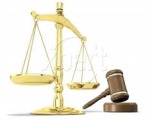

Conflict of Interest in NJAC Case
What should be the composition of the five judge Supreme Court bench formed to decide whether the NJAC is a better way to select judges than the erstwhile collegium system? This is the big question that is haunting the bench ever since it was constituted to hear PILââ¬â¢s on this matter. The biggest question is that of ââ¬Ëconflict of interest,ââ¬â¢ a subject that has wide ramifications. But since the apex court is the court of last resort, who else is going to decide on the constitutionality of the NJAC? If points of law are raised at every hearing, the case will never get heard.By Sunil Garodia
First publised on 2015-09-22 17:40:53
The main point of contention was Justice A R Daveââ¬â¢s presence on the bench. Being one of the senior most judges, he was also part of the NJAC. Senior advocate Fali S Nariman has objected to this and Justice Dave immediately recused himself from the bench. The CJI then appointed Justice J S Khekhar as head of the bench.
The conflict of interest matter has also caused deep divisions in the legal fraternity. Some senior lawyers are of the view that if Justice Dave does not attend NJAC meetings and hears the case and decides purely on merits, there should be no problem. But the issue is not that easy.
Under the collegium system, selection of judges was the exclusive preserve of the top judiciary. But the NJAC comprises of the CJI, two senior most judges of the SC, the law minister, two eminent civil society representatives chosen by the CJI, the prime minister and the leader of the largest opposition party. One believes that the need to form the NJAC arose as there was no standard to judge the judges on their intellect, performance, probity and bias. The Judicial Accountability Bill is on the backburner and the Courts have not initiated an internal mechanism.
In the absence of such a mechanism, it is better to have a wider representative body to select judges. The charge that the government is looking to appoint pliant judges flies in the face of the composition of NJAC ââ¬" the government has only two spots in a body of eight. Even the two civil society representatives will be handpicked by the CJI.
But in the instant controversy, isnââ¬â¢t it always better to have someone on the bench who is in no way connected to the NJAC? In the recent BCCI case, the court had itself said that no one can be a judge in his own case. If Justice Dave is on the NJAC and still hears this case, will he not be violating the fundamental tenet of law? Hence, in the interests of fairness, judges who have nothing to do with the NJAC should hear this PIL.











